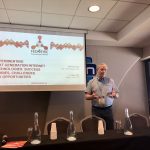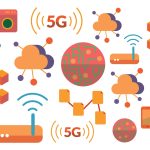The 7th Fed4FIRE+ Engineering Conference (FEC7) was transformed into a virtual conference, held in early April. Originally planned to be held in Poznan, Poland, in March, the event was neither cancelled nor postponed, it was digitalized. This was a consequence of the unforeseen situation which our society experiences nowadays.
The agenda was rearranged and a number of sessions were scheduled in the first week of April to allow the 21 experimenters selected from the Fed4FIRE+ Open Calls to present their experiments, results and feedback on using the Fed4FIRE+ testbeds.
Thanks to the remote accessibility of federated testbeds, the experimenters were able to run their experiments and were able to join the virtual FEC presenting their results.
During the FEC7, each of the experiments covered a brief overview of the objectives of the tests executed and the results achieved. Participants also dedicated a significant amount of time to share their experiences of using the Fed4FIRE+ testbeds and tools and to provide feedback to the consortium and the individual testbeds. Extracts from the feedback sessions include the following comments:
“The Open Call offers us a unique chance (as a young startup) to speed up our solution benchmarking.”
“As an SME, we don’t have the lab infrastructure required to carry out the proposed experiment.”
“We suggest to make a sustainable effort to keep testbeds up to date in terms of new technologies (e.g. 5G NR, MEC –Mobile Edge Computing).”
These kinds of feedback are very useful for the testbed operators and the fact that – so far – from around 60 finished experiments, more than half of them triggered some kind of action by the testbeds to improve their tools, their set-up, or testbed; or to implement new features.
Continuous improvements allow Fed4FIRE+ to maintain its position as a unique and top-quality federation of NGI testbeds.
A series of presentations also clearly illustrated the broad range of fields in which Fed4FIRE+ can provide support to experimenters for smart cities, smart homes, healthcare, smart agriculture, smart vehicles, networks, teaching, tourism, and many other areas of interest.
Although the virtual event limited personal interactions and exchange of experiences, the presentations were very well received. Still, the whole community is looking forward to future events which would, once again, allow social contact.






